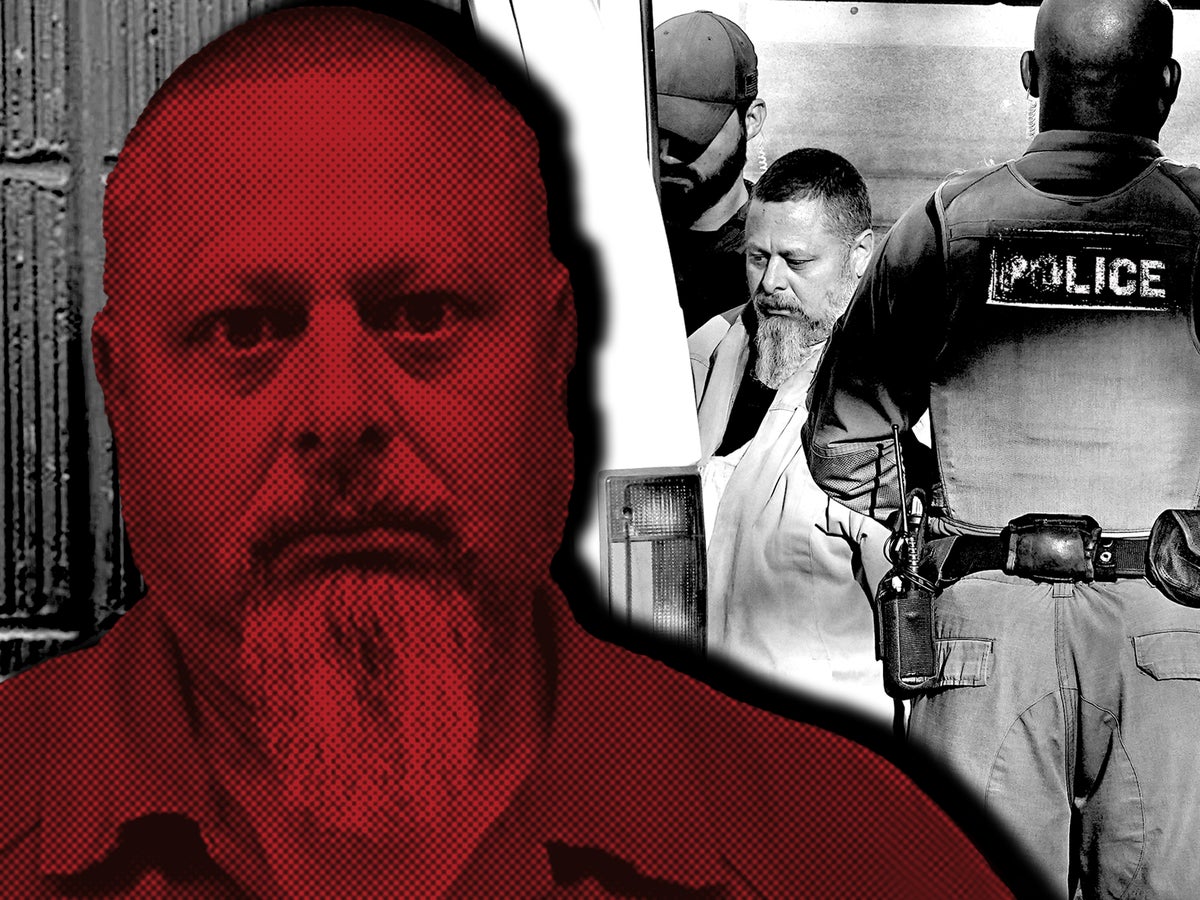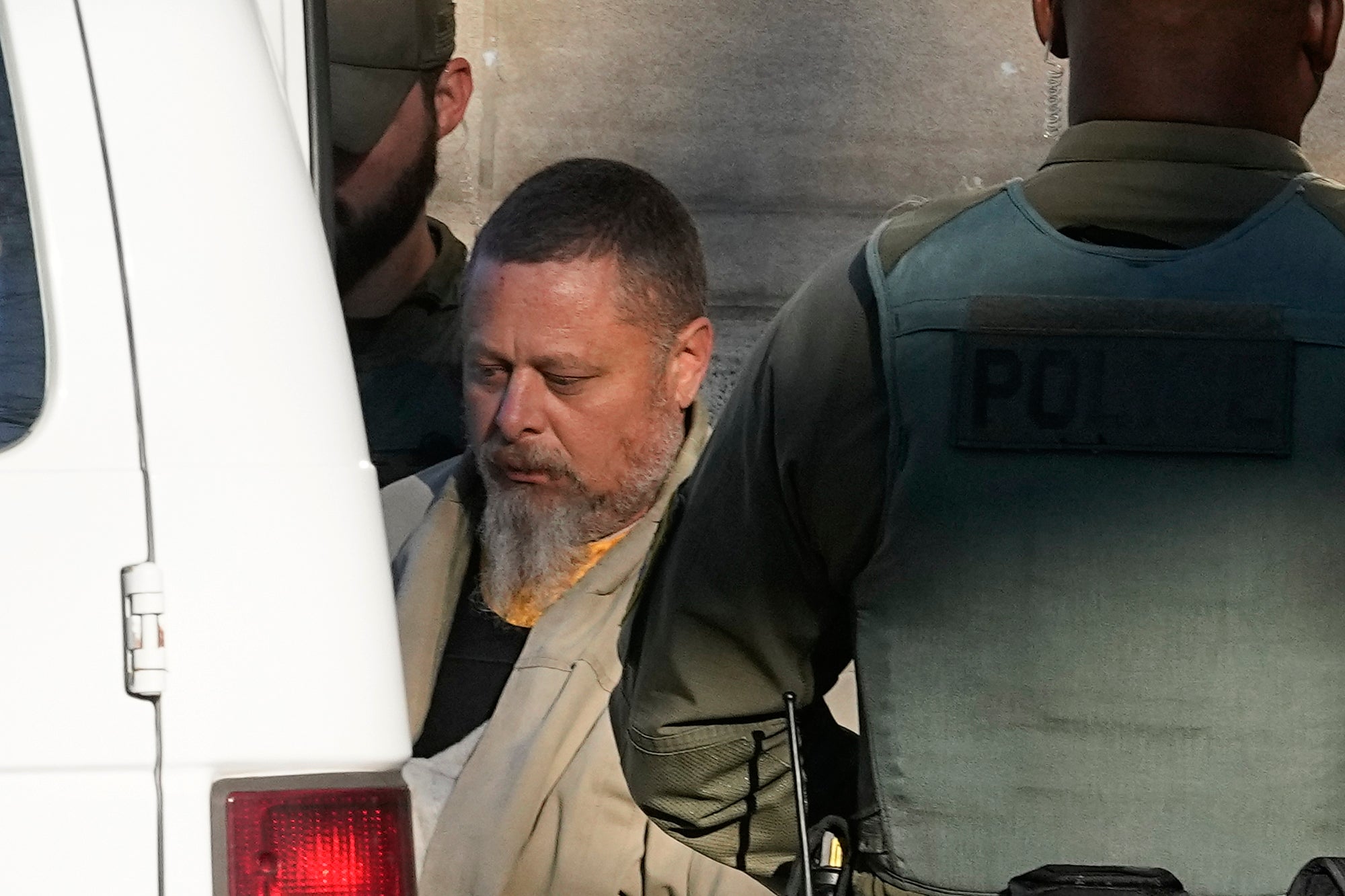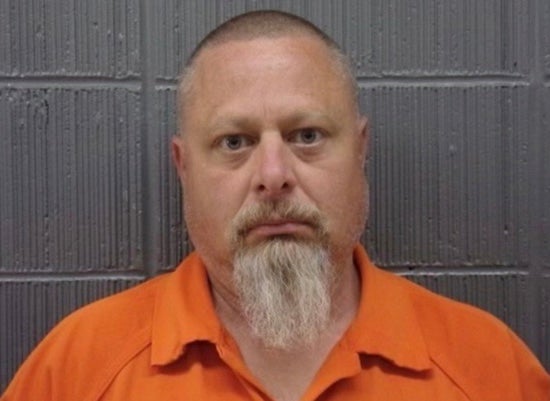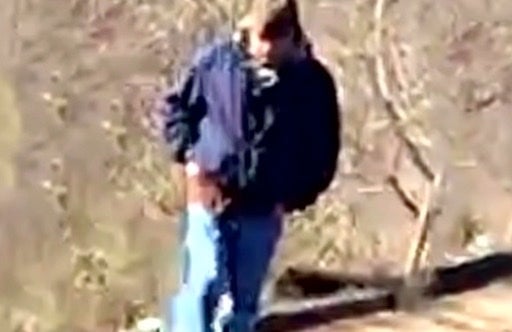
A single .40 calibre bullet discovered near the bodies of Libby German and Abby Williams turned out to be the smoking gun that led police to charge 50-year-old CVS worker Richard Allen with their murders.
Now, the suspect appears to be trying to have that key evidence thrown out of the case.
In a motion filed in an Indiana court on 13 June, Mr Allen’s attorneys asked a judge to rule certain “ballistics evidence” in the case inadmissible at trial.
The motion is sealed and so the specific ballistics evidence in question and what argument his defence team is presenting for its exclusion remains unclear for now.
But it appears that the judge’s ruling on the motion could play a key role in the strength of the prosecution’s case.
The criminal affidavit, which was partly-redacted and released in November, had revealed for the first time that the local man was finally tied to the murders through ballistics on a bullet found at the bloody crime scene.
While much about the teenagers’ murders remains unknown, the affidavit said investigators now believe Mr Allen is the “Bridge Guy” seen in a video that Libby recorded and posted to her Snapchat account on the day she died.
Eyewitness accounts in the affidavit from three unnamed juveniles also recount how they spotted a “kind of creepy” man that roughly matched a description of the suspect near the murder scene on 13 February 2017.
When investigators interviewed Mr Allen in 2017, he admitted being in the area of the Monon High Bridge, an abandoned rail bridge, just outside the town of Delphi, on the day the girls were killed.
But he said he had never been in the area where the bullet was found and has strongly denied any involvement in their deaths.

On 13 February 2007, best friends Libby and Abby set off on a hike along the Monon High Bridge Trail in their hometown of Delphi.
During the walk, Libby posted a photo of her best friend walking along the Monon High Bridge. It was the last known photo of Abby before she was killed.
Later that day, the teenagers were reported missing when they failed to return to a spot where a family member was picking them up.
The next day – Valentine’s Day 2017 – their bodies were discovered in a wooded area around half a mile off the trail.
Here, The Independent explains key details revealed in the affidavit.
The bullet
An unspent .40 calibre bullet was found between the bodies of 13-year-old Abby Williams and Libby German, 14, according to a probably cause affidavit released in the case of the State of Indiana v Richard M Allen.
Law enforcement have never revealed the girls’ cause of death, saying only that they lost a lot of blood after being attacked with an unspecified weapon and were not killed in the same location where their bodies were discovered.
On 13 October, investigators executed a search warrant at the home on North Whiteman Drive that Mr Allen shared with his wife Kathy.
The affidavit states they found knives and firearms, including a Sig Sauer Model P226 pistol.

The Indiana State Police Laboratory analysed the gun and determined the unspent round found two feet from one of the victim’s bodies had been cycled through Mr Allen’s gun, according to the affidavit.
Mr Allen confirmed he had owned the gun since 2001, and his wife Kathy is alleged to have told investigators that her husband was the only person with access to the weapon.
Mr Allen offered no explanation how the bullet — which had not been fired — ended up in between the bodies of the two teenage victims, the document states.
The affidavit also revealed that one of the victims is heard saying “gun” in chilling footage on Libby’s cellphone before she died.
Investigators had previously revealed that whoever attacked Libby and Abby had told them to go “down the hill” in the footage.
The ‘Bridge Guy’
A mystery figure seen in the footage captured by Libby became known as the “Bridge Guy” after a Snapchat video taken on Libby’s phone during their hike was released by authorities last year.
In the clip, a man wearing jeans, a blue jacket and a hoodie can be seen approaching the girls. A male voice can be heard saying the words “guys” and “down the hill.”
Police believe the recording was made just before the murders took place, and praised the girls’ awareness and foresight for recording the clip.

Investigators described the suspect as a white male aged between 16 and 40 years old, between 5’ 6” and 5’ 10” in height and weighing between 180 and 200 pounds.
The affidavit contains an eyewitness account from three girls under 17 who say they encountered a man on the Monon High Bridge who seemed to be hiding his face and glared at them when they said hello.
One of the three juveniles put the man’s height at no taller than 5’ 10”. They gave varying accounts of what he was wearing, but all said he had jeans and a jacket on.
A female witness, whose name has also been redacted, told investigators she also saw a man matching the description of the “Bridge Guy” captured on Libby’s video on the Monon High Bridge. She also recounted seeing Libby and Abby walking towards the bridge at about 1.49pm.

A separate witness told police they had seen a man wearing a blue jacket and blue jeans who was “muddy and bloody”. CCTV footage from the nearby Hoosier Harvestore placed that witness driving away from the area at about 3.57pm.
Both witnesses told investigators they didn’t come across any other males on the trails that day.
In a police interview early on in the investigation, Mr Allen said he was on the trail from 1.30pm to 3.30pm.
He said he had walked from the Freedom Bridge to the High Bridge, and said he had noticed three juveniles but didn’t interact with them as he was distracted by a stock ticker on his phone.
A vehicle resembling a 2016 Ford Focus owned by Mr Allen was seen on CCTV footage from the Hoosier Harvestore.

One witness said it was parked behind an old child protective services building in an odd location and it was parked as if the driver had been trying to conceal its plates.
During a separate interview on 13 October this year, Mr Allen told police he gone to the bridge to “watch the fish”.
He said he was wearing blue jeans with a blue or black Carhartt jacket and may have also worn a head covering. He admitted seeing the three juvenile girls but said he didn’t encounter anyone else.
According to the affidavit, a detective who had worked on the case since 2017 believed that the combination of the video shot on Libby’s phone, the eyewitness accounts, and CCTV footage showed that Mr Allen was the “Bridge Guy”.
“Further, that the victims were forced down the hill by Richard Allen and (led) to the location where they were murdered.”
Allen’s interviews with Indiana police
The affidavit is sure to raise questions as it revealed that Mr Allen spoke with investigators at least twice, including in 2017 - confirming that he was on the police radar at the time of the murders.
In the 2017 interview, Mr Allen had confessed to being on the Monon High Bridge Trail on the afternoon of 13 February – placing him on the scene at the same day and time that the victims went on their fateful walk.
At the time, he denied any involvement in the murders and insisted he had never seen the two girls that day.
In another interview on 13 October 2022, Mr Allen had “no explanation” as to how the spent bullet ended up in between the bodies of the two teenage victims, the affidavit states.
The accused killer said he had “not been on the property where the unspent round was found, that he did not know the property owner, and that he had no explanation as to why a round cycled through his firearm would be at that location,” it says. The property owner – Ron Logan – was also previously tied to the case. He died in 2020.







